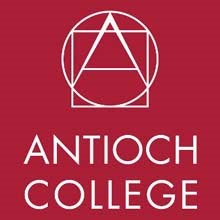There was no river; there were no woods.
My mother grew up the daughter of poor Italian immigrants in the Bushwick section of Brooklyn. When there was work, my grandfather was a laborer and my grandmother did piece work in a sweatshop. My mother, always a good student, had to quit school at sixteen and get a job to contribute to the family income. There was a depression and then a war. It probably didn’t seem like there was much to be thankful for.
My mother married my father when she was eighteen. He was a young Marine officer who had just graduated from college. Shortly after the wedding, he was shipped off to the South Pacific where he was when I was born in the hospital at the Brooklyn Navy Yard. After my birth, my mother found a rent controlled apartment in an elevator building in Woodhaven, Queens and moved away from her parents, about a 20-minute ride on the Jamaica Avenue El. There were just the two of us, until my father returned from the war and things started looking up.
Dad worked as an insurance adjuster and went to law school at night. Soon I had two sisters. Fortunately, when he graduated, he landed a job in the Brooklyn DA’s office. We moved into a bigger rent controlled apartment in the same building. We weren’t exactly the Nelsons, but I didn’t know that.
On Thanksgiving day, the old man would pack us into the ’37 Plymouth and we’d head off down Eastern Parkway to Bushwick for dinner at my grandparent’s. Once we left Queens, there were barely any trees.
Grandma and Grandpa and my young uncle lived in a coldwater flat on the second story of a four story brownstone walk-up on Himrod Street. The neighborhood’s claim to fame was favorite son Jackie Gleason, a symbol of hope on a bleak landscape of rows of identical buildings. The Irish were there before the Italians took over. Later, it would be the Puerto Ricans.
The apartment was called a coldwater flat, because tenants had to make their own heat and hot water. There was a potbelly stove and a manually operated gas water heater. Each resident had a coal bin in the basement. It was also called a railroad flat, because there was no hallway. To get from one end of the apartment to the other, one had to walk through each of the rooms.
My old man would drop us in front of the building and look for a place to park the Plymouth. We had to climb a long flight of stairs to get to their apartment door. All the way up we were lured by the aroma of garlic and olive oil, homemade tomato sauce, a turkey roasting in the oven, and handmade spinach and cheese ravioli drying all over the kitchen.
Our dinner was a feast by anyone’s standards. The ravioli was just a first course, during which I would enter into mortal combat with my uncle over mushrooms sautéed in garlic and olive oil. By the time the turkey and vegetables were served, we were all pretty much stuffed. After dinner there were Italian pastries from the local bakery. I remember my mother letting me have only half a cannoli. She knew my eyes were bigger than my stomach.
My grandfather, who spoke no English, had a giant multiband international radio that look like a Wurlitzer juke box. I don’t remember ever hearing it work, but I do remember getting yelled at for poking at the many different colored buttons. Shortly after Thanksgiving, he would start setting up his antique Lionel train set for Christmas. Every year, at the base of the Christmas tree, he would create a mountain village reminiscent of the village where he was born. The train would run in and out of a tunnel and, although it was only a simple loop, it created the impression of a whole other world; the world of my grandfather that I would never know. When I think of him now, I think of him cracking walnuts for his grandchildren and offering us roasted chestnuts that we always declined, or teasing us, telling us through my mother that there were mice in the walls.
Eventually, the males would gravitate to the black and white TV in the living room to watch football while the women did the dishes. Soon there would be a chorus of snores as the tryptophan kicked in. It was warm in that coldwater flat in Bushwick. And, while I’m sure the adults still had plenty of worries, we kids felt safe and secure in the that Thanksgiving routine.
The last Thanksgiving we celebrated in Bushwick, I arrived on my own on the el. It must have been 1957 and I would have been thirteen. I had been to a football game at one of the city high schools. That winter we would move to the suburbs on Long Island and, thereafter, dinner would be at our house. We still had the ravioli and the mushrooms, but it was never quite the same without that long climb up the stairs to Grandma’s place.
I went on to a small college in New England and returned to Brooklyn for law school. Years later, in a notorious case, I defended a drug dealer who was charged with killing a woman in a drive-by shooting in Bushwick in a building like the one where my grandparents lived.
Today, Kalson is in Chicago with his girlfriend Rhianon's family. May and Chris and Rhesus will be over late for a small turkey. No extra chairs at the table this year.
Thursday, November 22, 2012
Subscribe to:
Post Comments (Atom)








No comments:
Post a Comment